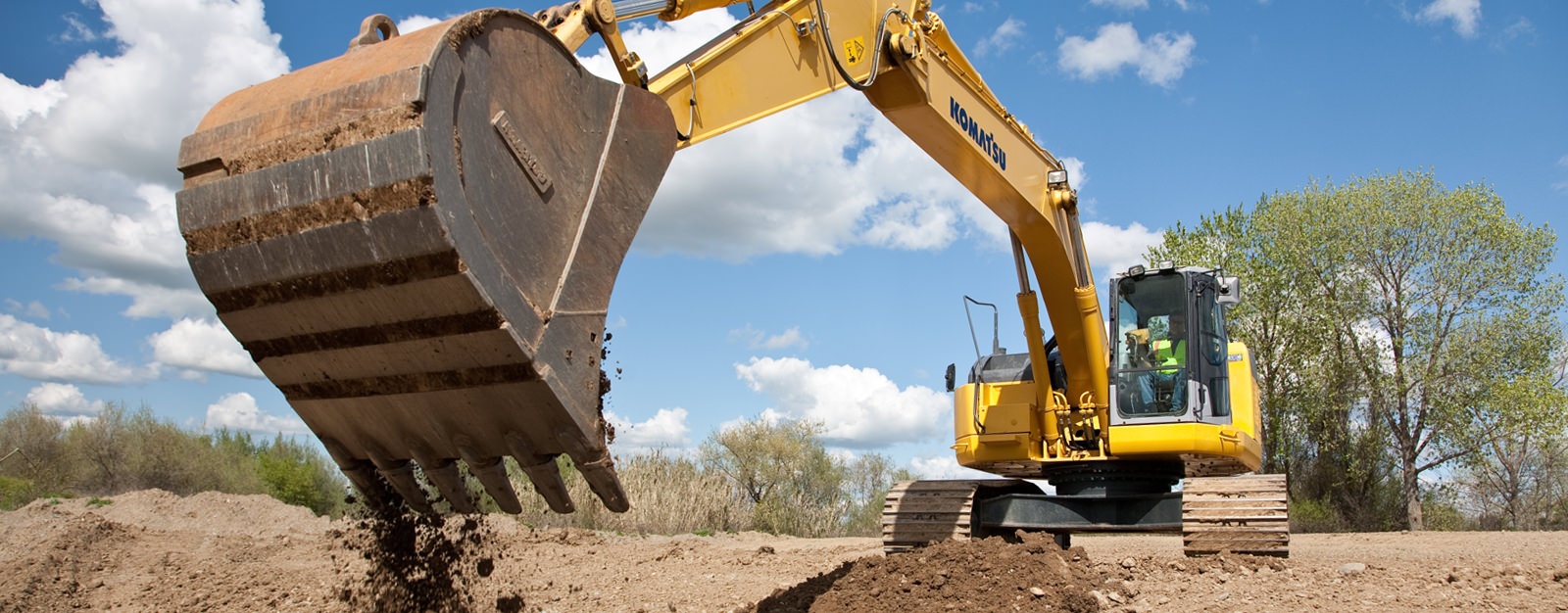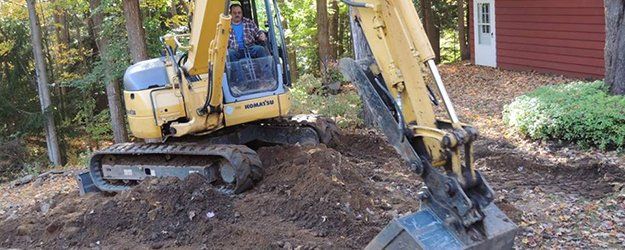Finest Dump Truck Companies in Ohio - Top-Rated Dump Truck Providers
Finest Dump Truck Companies in Ohio - Top-Rated Dump Truck Providers
Blog Article
Comprehensive Excavation Methods: Grasping the Basics for Success
In the world of construction and civil design, the importance of efficient excavation methods can not be overemphasized. The mindful planning, specific implementation, and thorough attention to detail required in excavation projects require a thorough strategy that encompasses various fundamental elements. From initial soil evaluation to the implementation of safety and security procedures and normal development tracking, mastering these core components is necessary for accomplishing success in any type of excavation undertaking. The real mastery lies not simply in understanding these principles however in flawlessly integrating them to navigate the complexities of excavation projects with finesse.
Understanding Excavation Task Preparation

Effective excavation tasks are improved the structure of comprehensive and meticulous planning. The first stage of any excavation job is the planning stage, where important decisions are made that can dramatically affect the result of the task. During this phase, it is necessary to gather all relevant details about the site, including topographical surveys, dirt make-up, and any kind of prospective dangers that may exist. Understanding the project extent, budget, and timeline constraints is essential for producing a comprehensive excavation plan that guarantees the task's success.
One secret element of excavation task preparation is the development of an in-depth timeline that lays out the series of due dates, tasks, and turning points. By very carefully considering all these aspects during the preparation phase, excavation projects can be carried out efficiently and efficiently, leading to successful end results - dump truck companies in ohio.
Dirt Analysis and Site Analysis
Performing extensive soil evaluation and website assessment is an essential action in the preparation phase of any excavation project. Dirt evaluation involves establishing the structure, framework, and properties of the soil at the excavation site. This information is important for recognizing the soil's bearing capacity, wetness material, and possibility for erosion, which are essential consider identifying the excavation approaches and devices required for the job.
Site evaluation exceeds dirt analysis and includes a more comprehensive analysis of the general site conditions. This assessment includes identifying any possible dangers, such as underground energies, ecological worries, or unstable surface, that can influence the excavation procedure. By completely examining the website, task managers can establish effective excavation techniques that prioritize safety and security, effectiveness, and environmental management.
Using innovative innovations like ground-penetrating radar, dirt tasting, and drone studies can improve the precision and effectiveness of dirt analysis and site analysis. Spending time and resources in these preliminary steps can inevitably conserve time and prevent costly delays or problems throughout the excavation procedure.
Equipment Selection and Usage
Efficient excavation jobs count greatly on tactical tools option and application to guarantee ideal efficiency and efficiency. Selecting the right equipment for the task is important in making the most of efficiency and reducing downtime. Variables such as the kind of dirt, depth of excavation, and project range play a substantial role in establishing one of the most ideal tools for the job at hand.

Along with picking the proper tools, proper use is vital to job success. Operators needs to be trained to handle the tools safely and successfully - dump truck companies in ohio. Routine upkeep checks and prompt repairs aid prevent malfunctions and ensure constant performance throughout the project
Safety Procedures and Regulations Compliance
In the world of excavation jobs, prioritizing safety measures and compliance with laws is extremely important to making certain a safe and lawfully audio functional environment. learn the facts here now Safety and security procedures include a range of methods, consisting of conducting thorough website assessments, executing appropriate signs and obstacles, and providing sufficient security training for all personnel associated with the excavation process. Adherence to guidelines, such as OSHA requirements in the United States, ensures that the excavation job satisfies the needed requirements to protect employees, bystanders, and the surrounding setting.

Tracking Progress and Adjusting Approaches
Exactly how can forecast supervisors successfully track the development of excavation jobs and adjust their approaches appropriately to optimize outcomes? Tracking development is crucial for ensuring that excavation projects stay news on track and meet due dates.

Final Thought
Finally, understanding the principles of thorough excavation methods is vital for the success of any project. By understanding task preparation, analyzing dirt and website conditions, choosing ideal tools, following safety laws, and checking progression, task managers can guarantee a reliable and smooth excavation procedure. Carrying out these methods will lead to effective outcomes and decrease possible threats or obstacles throughout the excavation job.
The initial phase of any type of excavation job is the planning phase, where crucial choices are made that can substantially affect the end result of the project. Understanding the job budget, timeline, and scope restrictions is important for producing a comprehensive excavation strategy that makes sure the task's success.
Exactly how can predict supervisors successfully track the advancement of excavation tasks and adapt their techniques accordingly to pop over to this web-site enhance outcomes? By closely keeping track of progression and being ready to adjust techniques, job supervisors can boost the general success of excavation tasks.
By understanding project planning, analyzing soil and website conditions, choosing ideal tools, complying with safety guidelines, and keeping track of progression, project supervisors can guarantee a efficient and smooth excavation process.
Report this page